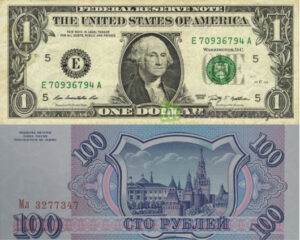
Pic courtesy: The Borgen Project (Internet)
Western Sanctions on Russia
- The United States and European Union have frozen nearly half the Russian central bank’s $640-billion foreign exchange reserves held in banks outside Russia.
- Russian companies have been debarred from doing transactions in dollars and euros.
- 400 odd western firms have closed operations in Russia.
- A majority of the Russian banks have been cut off from the SWIFT (Society for Worldwide Interbank Financial Telecommunication), which executes financial transactions and payments among banks worldwide.
Expected results
- The sanctions and curbs were expected to result in a big sell-off of the rouble.
- It was expected to create insolvency risks for the Russian economy.
Rouble Performance
- The rouble was trading at around 76 before the invasion.
- It went down to a record low of 139 on March 7.
- The rouble appreciated to 83 to the dollar intraday on 29 Mar.
- The rouble has recouped most of its losses.
Sanction Effect (So Far)
Considering the severity of European and American sanctions on Russia, the effect on the rouble is modest. The recovery in the rouble suggests that the impact of the West’s economic sanctions is much lower than anticipated.
Likely reasons
- European countries continue to buy oil and gas from Russia. The European Union gets 40 percent of its natural gas from Russia.
- Major emerging markets (including China) continue to trade with Russia.
- The biggest jump in the rouble occurred when the Russian president announced that unfriendly countries (EU, USA, Canada, Australia, New Zealand, Japan, South Korea, and Taiwan) would have to pay in roubles. This increased the demand for the rouble.
Implications
- Energy Crisis. The sanctions on Russia might lead to a global energy crisis.
- This could be the beginning of the de-dollarisation of global trade, especially in oil and gas.
- This could be the beginning of a new global monetary order.
- The new monetary order could be based on commodity-based currencies.
- This would weaken the Eurodollar system.
It is wait and watch for long term repercussions.
Bottom Line
It is all about Money.
Question
Is this the end of the Petro-Dollar?
Suggestions and value additions are most welcome
Links to previous posts on Ukraine war:
For regular updates, please register here
References and Credits
To all the online news channels.
